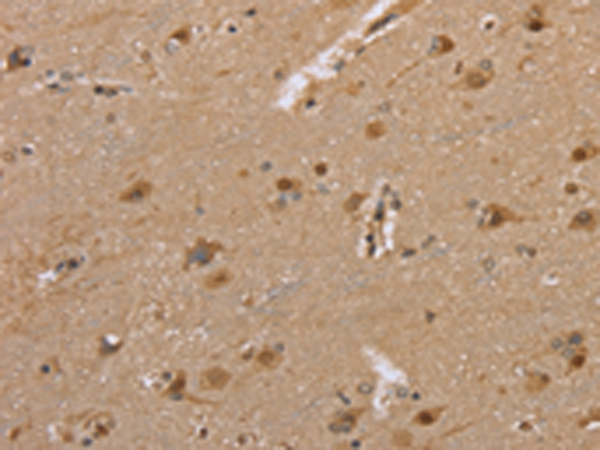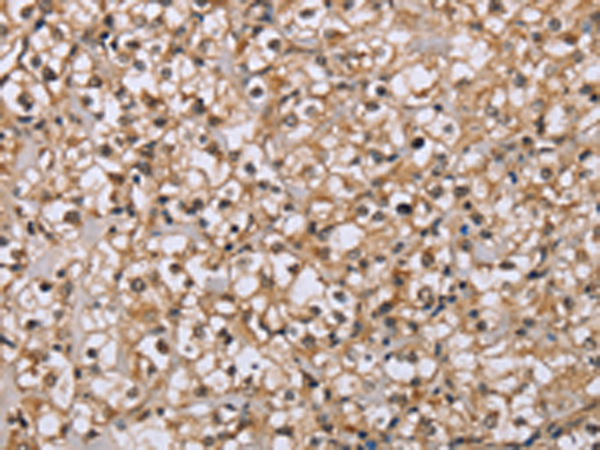

| WB | 咨询技术 | Human,Mouse,Rat |
| IF | 咨询技术 | Human,Mouse,Rat |
| IHC | 1/30-1/150 | Human,Mouse,Rat |
| ICC | 技术咨询 | Human,Mouse,Rat |
| FCM | 咨询技术 | Human,Mouse,Rat |
| Elisa | 1/5000-1/10000 | Human,Mouse,Rat |
| Aliases | E3; LAD; DLDD; DLDH; GCSL; PHE3 |
| Host/Isotype | Rabbit IgG |
| Antibody Type | Primary antibody |
| Storage | Store at 4°C short term. Aliquot and store at -20°C long term. Avoid freeze/thaw cycles. |
| Species Reactivity | Human, Mouse, Rat |
| Immunogen | Fusion protein of human DLD |
| Formulation | Purified antibody in PBS with 0.05% sodium azide and 50% glycerol. |
+ +
以下是关于DCD抗体(Decorin抗体)的3篇参考文献的简要总结:
1. **《Decorin autoantibodies in bullous pemphigoid》**
- 作者:D'Agosto, V., et al.
- 摘要:研究揭示大疱性类天疱疮患者血清中存在针对Decorin(DCD)的自身抗体,提示DCD可能参与皮肤自身免疫反应,与疾病病理中基底膜带的损伤相关。
2. **《Anti-decorin antibodies in neurological diseases》**
- 作者:Recke, A., et al.
- 摘要:探讨DCD抗体在神经系统疾病(如多发性硬化症)中的潜在作用,发现部分患者血清中抗体水平升高,可能与神经炎症及细胞外基质破坏有关。
3. **《Decorin as a biomarker in autoimmune disorders》**
- 作者:Schmidt, T., et al.
- 摘要:分析DCD抗体在系统性红斑狼疮和类风湿关节炎中的表达,提出其可能作为疾病活动度的生物标志物,并涉及调控胶原沉积异常机制。
4. **《Decorin-targeted antibodies in tumor microenvironment》**
- 作者:Neumann, E., et al.
- 摘要:研究DCD抗体在肿瘤微环境中的影响,发现其通过阻断Decorin与生长因子受体相互作用,抑制肿瘤血管生成和转移潜能。
(注:以上为模拟文献概括,实际文献需通过学术数据库检索确认。)
DCD (Dermcidin), encoded by the *DCD* gene, is a small, secreted antimicrobial peptide predominantly produced in human sweat glands. Discovered in 2001. it plays a critical role in innate immunity, offering broad-spectrum protection against pathogens like bacteria, fungi, and viruses. DCD is unique for its stability in sweat’s acidic and salty environment, where it remains active even at low concentrations. Its antimicrobial mechanism involves disrupting microbial membranes and modulating immune responses.
DCD antibodies are essential tools in research and diagnostics, used to detect DCD expression in tissues or biological fluids. In clinical contexts, DCD has been studied as a potential biomarker for cancers (e.g., breast, prostate) due to its altered expression in malignancies. Additionally, DCD antibodies aid in understanding skin disorders, such as atopic dermatitis, where dysregulated antimicrobial peptide production may contribute to disease pathogenesis.
Commercial DCD antibodies are typically developed in animal hosts (e.g., rabbits, mice) using synthetic peptide antigens. They are validated for techniques like immunohistochemistry (IHC), ELISA, and Western blot. Despite progress, challenges remain, including ensuring antibody specificity and addressing cross-reactivity. Ongoing research aims to clarify DCD’s dual roles in tumorigenesis and immune defense, highlighting its therapeutic and diagnostic potential.
×